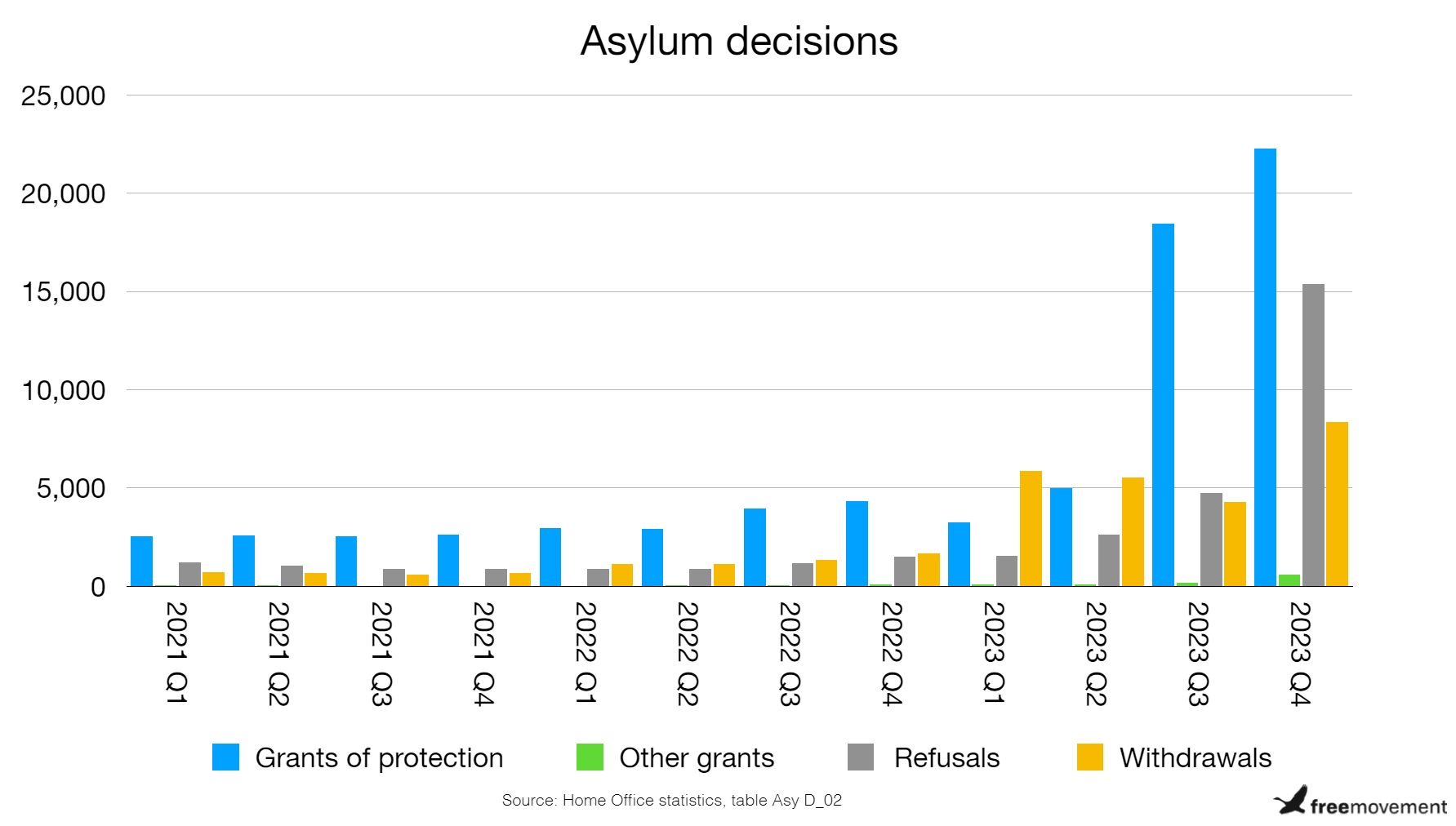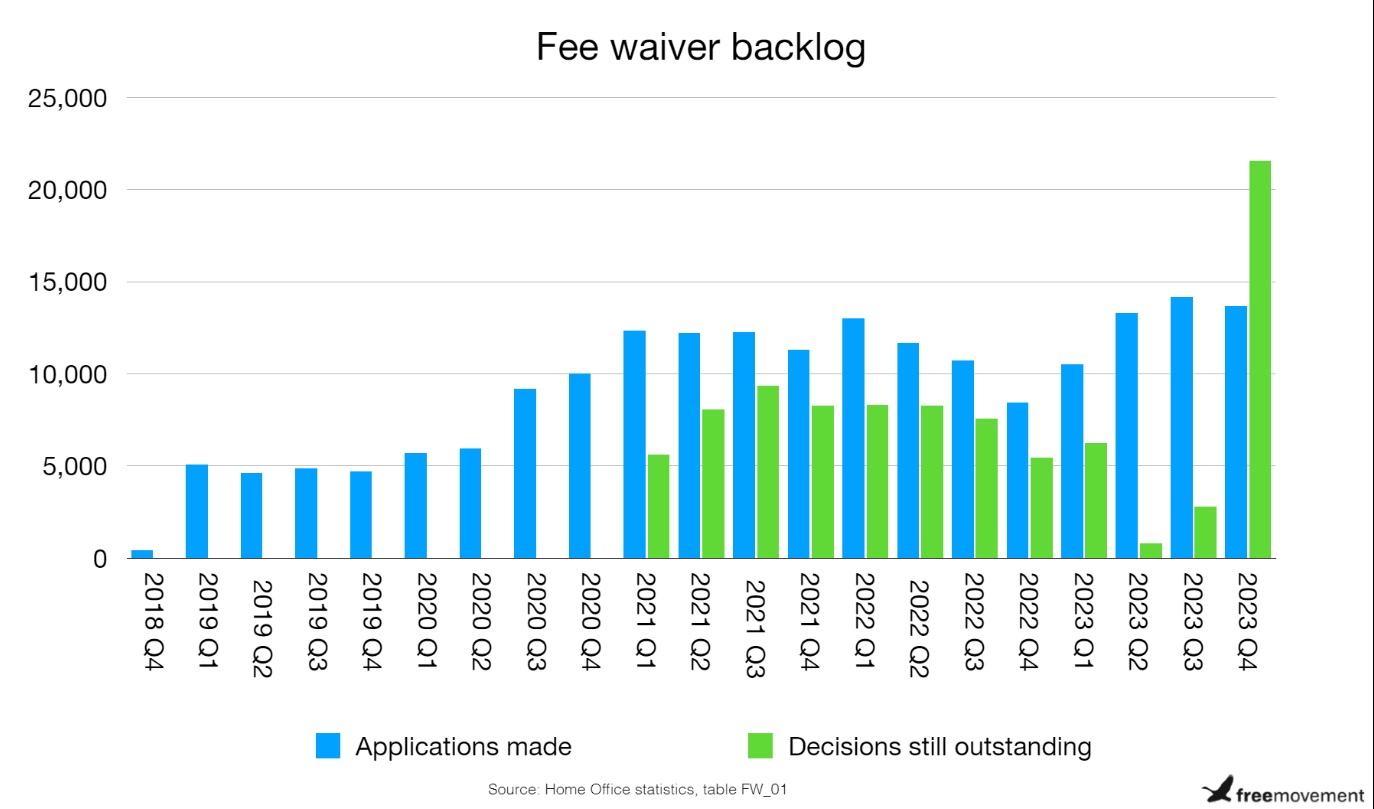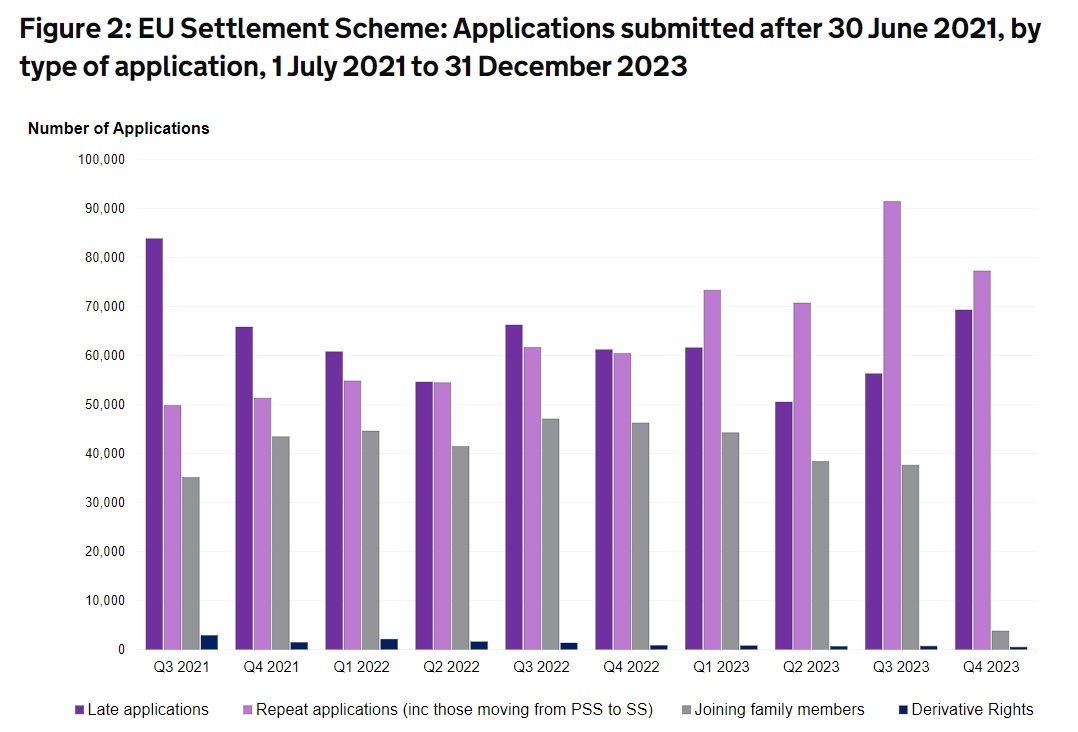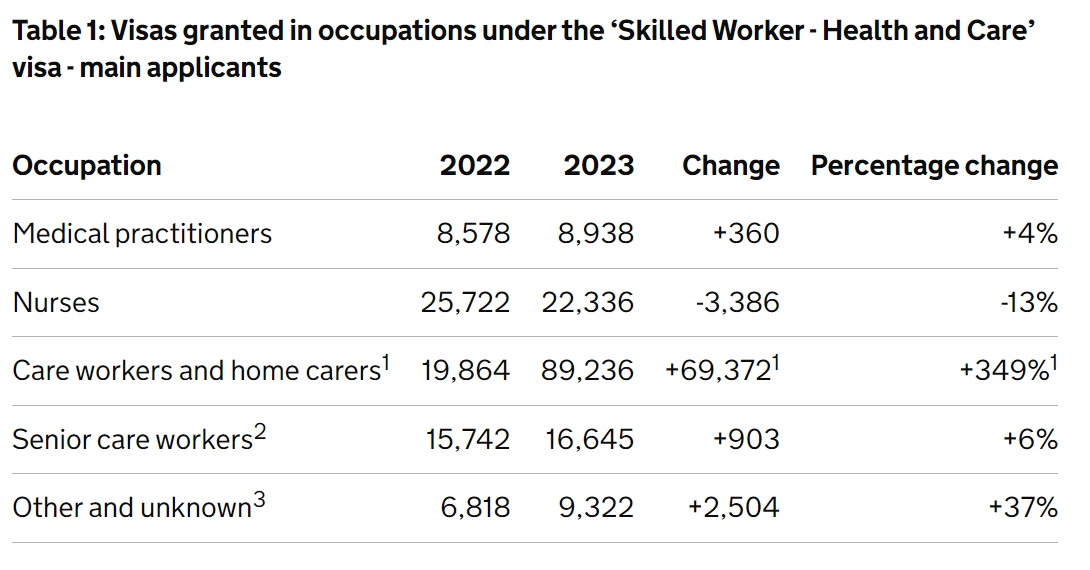- BY Sonia Lenegan

Number of asylum refusals and homeless refugees skyrocket in latest statistics
THANKS FOR READING
Older content is locked

A great deal of time and effort goes into producing the information on Free Movement, become a member of Free Movement to get unlimited access to all articles, and much, much more
TAKE FREE MOVEMENT FURTHER
By becoming a member of Free Movement, you not only support the hard-work that goes into maintaining the website, but get access to premium features;
- Single login for personal use
- FREE downloads of Free Movement ebooks
- Access to all Free Movement blog content
- Access to all our online training materials
- Access to our busy forums
- Downloadable CPD certificates
Table of Contents
ToggleThe latest immigration and asylum statistics have been published today. We have highlighted some of the interesting data below on asylum, EU Settlement Scheme, fee waivers and student and work routes.
Asylum
As many have been predicting for a while now, the asylum grant rate has dropped substantially in the last three months of 2023. This is because the Home Office initially focussed on “easy grants” in the legacy backlog clearance exercise, leaving the more time consuming refusals until last.

Decisions were made on 46,572 applications (the number of people is always higher than the number of applications, as some are dependant on a main applicant) in the period October to December 2023. Of those, a huge 15,380 which is one third of the decisions was a refusal. Of 98,199 decisions made last year, 24,027 were withdrawals, the vast majority of whom will still be in the UK and will need to re-enter the system at some point.
Inadmissibility
Of the 34,113 notices of intent issued to people being considered under inadmissibility processes over the period 1 January 2021 to 31 December 2023, the top nationality by a distance is Afghanistan with 6,045 notices issued. This is due to the lack of safe routes for people to come to the UK other than making the dangerous journey across the Channel.
Other nationalities receiving the highest numbers of these notices are Albanians with 3,869, Iranians with 3,708, Eritreans with 3,276, Syrians with 3,072, Iraqis with 2,485 and 1,885 Sudanese people (table Asy_09b).
Interestingly, the Home Office has made its first inadmissibility decision since the first half of 2022, and has removed two people, the first removals since the end of 2022. I would guess that these are people who hold status in another EU country, as inadmissibility returns have been made only to EU countries.
Homelessness of refugees
The latest statistics on homelessness, for the period July to September 2023, were also released today. This covers some of the period where the Home Office started making newly recognised refugees homeless in much higher numbers due to a change in practice combined with an increasing number of positive decisions.
The figures show that there was an increase of 109.1%, to 920 households, of those who were at risk of being made homeless and who were owed a prevention duty after being evicted from asylum accommodation. The increase in those actually made homeless was 203.8%, to 2,370 households who were owed a relief duty.
As anyone who followed the coverage of this in the second half of last year will be aware, the problem continued to escalate and so we may see another substantial jump in these figures once the data to year end is released.
Large drop in attendance by Home Office presenting officers at asylum appeals
Data on Home Office presenting officer attendance at asylum appeal hearings (at table ALAR_01A) shows that, despite there being substantially fewer hearings than before the pandemic, there has been a drop from 99% for 2021/22 to 90% for 2022/23. A policy decision has clearly been taken in relation to deportation appeals and attendance at those rarely drops below 100%. Attendance at the Upper Tribunal is 100% in all of the data published.
Unless things improve, it seems that asylum appeals may just end up being the appellant and the judge. And that is unlikely to end well for appellants.
Fee waivers
There has been a huge jump in the number of outstanding fee waiver applications, with practitioners reporting that delays of several months are now standard. At the end of the same period in 2022, the number of outstanding fee waiver applications was 5,460 but this had jumped to 21,578 by the end of 2023.

It is worth noting that a lot of these fee waiver applications will relate to applications to extend leave in the ten year route under Appendix FM, and those fees did not increase in October 2023.
EU Settlement Scheme
The latest release on the EU Settlement Scheme says that since the 30 June 2021 deadline, applications have remained steady at around 55,700 per month. Some of these are late applications, but some have been made by those who hold pre-settled status and are upgrading to settled status.

Since changing how late applications are considered in August last year, the Home Office has found 44,460 applications invalid under the new criteria. The total number of late applications deemed invalid from 1 July 2023 to 31 December 2023 is 91,610, so we can see that almost half of those rejections have taken place over a period of only a few months.
Students
There has been a 5% drop in the number of students in 2023 compared to 2022, but this is still 70% higher than in 2019. What remains to be seen is what impact the restrictions from 1 January 2024 on the ability of students to bring their dependants will have on the number of student visa applications.
Work
There has been a huge increase in the number of sponsor licences granted in 2023. 42,890 decisions were made during the year, with 13,606 of those in the period October to December 2023. The latter figure is an 81% increase on the same period in 2022. Of the 42,890 decisions made, 33,231 were grants of licences.
As we already know from previous statistics releases, there has been a huge increase in the number of people coming to work in the health and care sector in the UK, the special route having been designed specifically to help with shortages in the sector.

Those are the figures for 2023 as a whole, but the numbers are starting to fall, with 37% fewer grants for health and care workers for the period October to December than for July to September 2023. As with students, we wait to see what impact restrictions on people in this route being able to bring their family with them will have.
Conclusion
There are a lot of problems that the government seems to be storing up for later (presumably hoping things come to a head after they have been voted out). Late applications to the EU Settlement Scheme, failure to process fee waivers at a time when we can expect more than ever to be made, and pretty much the entirety of the asylum system. The later the election, the more likely it is that they will need to deal with some of these issues whether they want to or not.
SHARE


2 responses